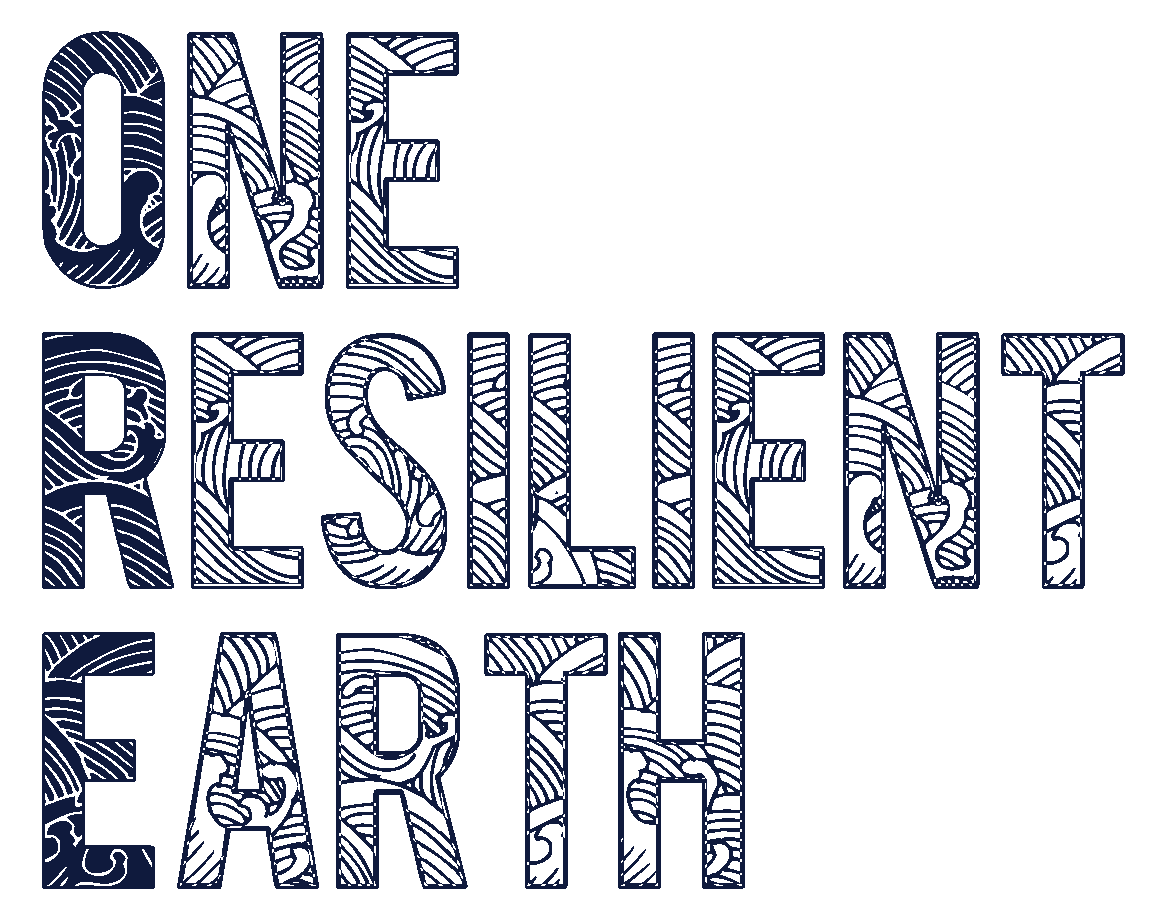The Open Mind Series is a selection of interviews with artists, designers and other ‘creators’ from around the world giving us an insight into how they see the world now and tomorrow. No qualifications required. No taboo. No right or wrong. Just openness. And artworks.
Has theatre helped you cope with the climate crisis? Or has it made it worse for you?
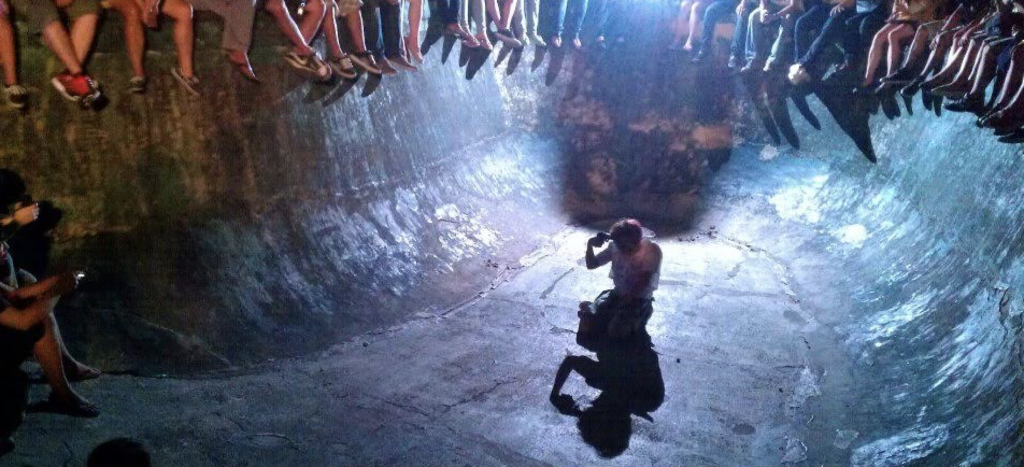
This is a great opening question! I immediately want to say THEATRE HAS MADE IT WORSE because theatre ruins everything, but that wouldn’t be quite true. Maybe better to say that for me, the climate crisis is the background and context for my (our) entire life. The crisis started before we were born, it will continue long after we’re dead. Crisis is all we know. We live our whole lives in the context of escalating planetary transformation, and the ground we stand on has never been steady. Theatre is what I do, it’s how I choose to live my life, but the crisis is the air I breathe. CO2 was 343ppm when I was born, it’s 419 right now, and it’s rising and accelerating. Art and storytelling is a way to be in this world, and the world is… well, the world is a little chaotic.
What do you hope to leave the audience with?
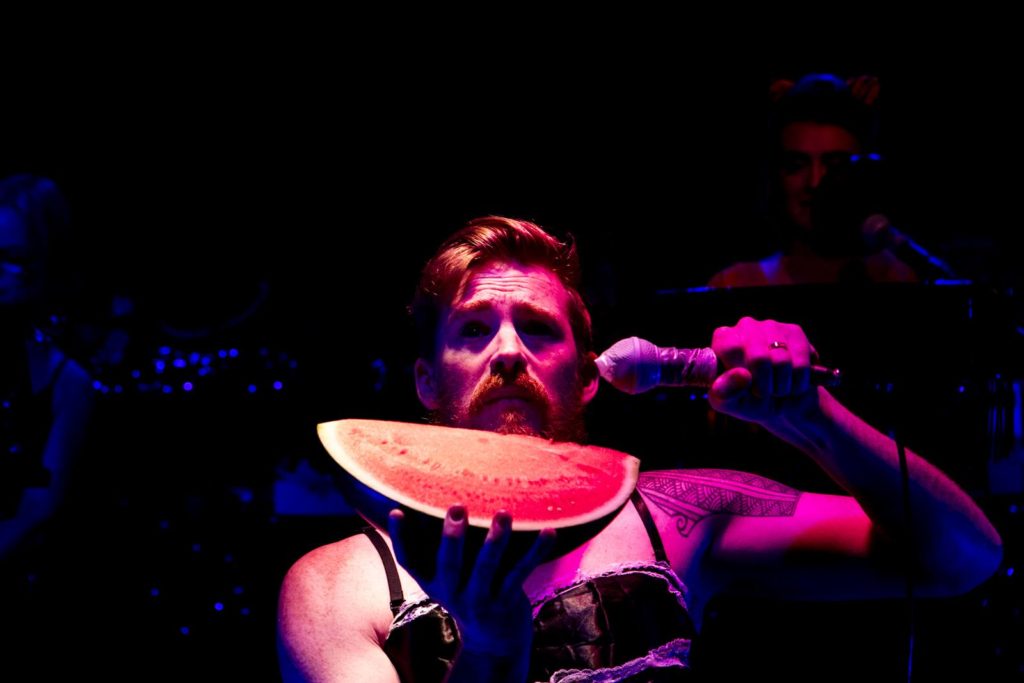
Always and only: a good night out. I’ve spent so many nights watching so many terrible plays where a group of miserable people shout at each other, so many nights wishing I could be anywhere else – and then again, I’ve had so many nights in the theatre laughing and feeling excited. I want performance to be a colourful rush, a lot of music and dancing and brightness and laughter and sex and action and love. And at the same time, the stories I want to tell always come back in different ways to this phenomenal transformation that we’re living through, this unique moment in the history of the planet where one species is driving change across the entire earth system. It’s an incredible story! But it’s not intuitively a theatrical story, and it’s not a story that generally makes people feel positive. So there’s the friction in my work – I want to share the things I find curious and extraordinary about the world today, and I want to make theatre that is a party, and that isn’t always very straightforward.
Whom do you wish could see your plays/performances today?
Gosh, the easy answer to this right now would be ‘real life human beings’, since we’re 18 months into the pandemic and live performance has been let’s say v limited this last little while. But that’s selfish of me. If I’m honest, it’s more about whose performances I’d like to be seeing. I want to be absorbing lots of people’s work, to be seeing new things by new artists, and to be sparking off that. In terms of my audiences – I think you can have a successful creative practice as long as each gig, on average, leads to at least one other gig. Right now I’m lucky enough that I’m able to string together a few projects and keep myself afloat. Beyond that, I don’t want to wish for too much – feels like tempting fate.
If there was no limit to what you could do, which story would you like to tell? Where would it be staged and with which protagonists?
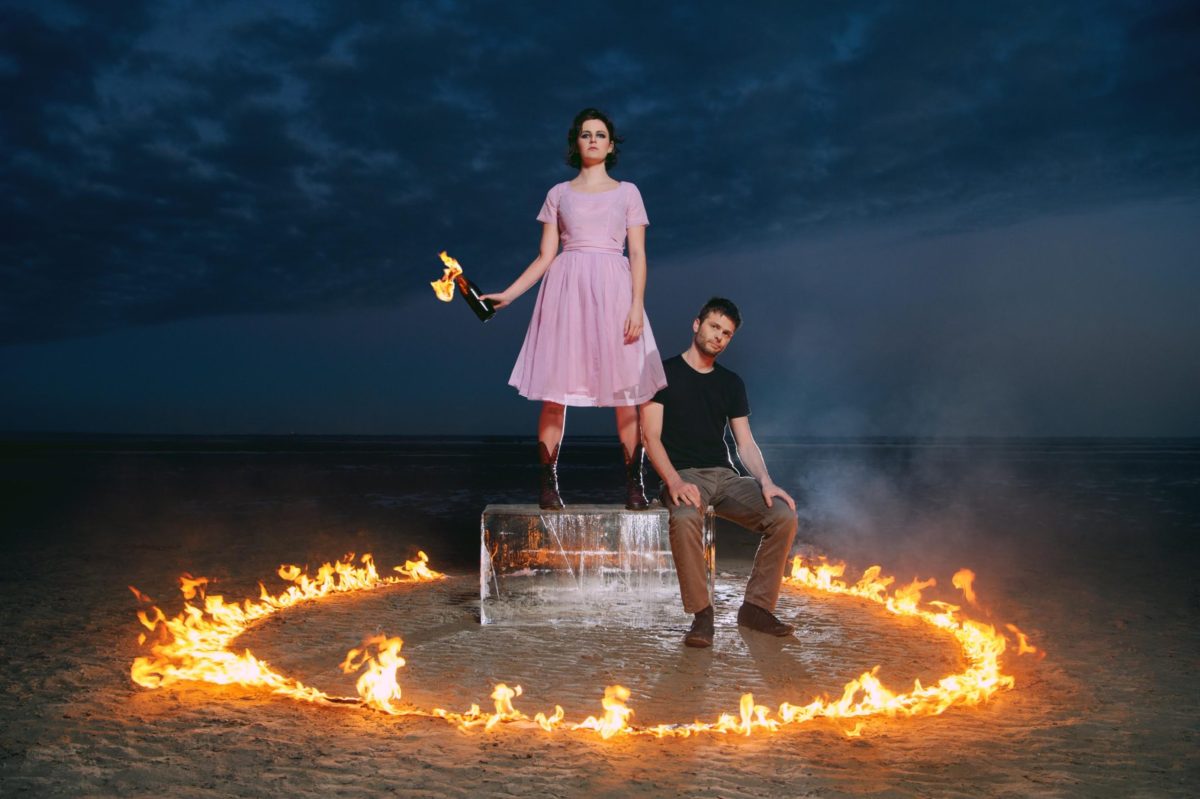
Ahhhh, the dream which I keep circling around, which I’ve embarked upon with my You’re Safe Til 2024 project, is to do a proper eight-hour show exploring different aspects of global change. It’s not intuitively a concept that people would choose to sit in for a day – it’s not the Harry Potter show – but I think that if you could have that space, that time, we could really start to explore the complexity of it, the scale and scope of it, and to build a conversation with people about what it all means for them in their lives. I think the limitation that I struggle with – a fruitful struggle, but a struggle still – is trying to tell a story about climate and global change in the 60-90 minute frame of a contemporary theatre show.
Do you have practices to make your work less wasteful and/or more sustainable?
- writing letters and making phone calls to politicians and corporations
- supporting Indigenous land rights activists
- donating to conservation orgs in the developing world (if you’re American, European or Australian, currency conversion rates mean that even a small donation on an artist’s wages goes a long way)
- supporting female education (climate imacts are not gender neutral and educating girls is one of the most holistically good things we can do as a global society to improve the world)
- if you’re in a position to get safely arrested, get arrested
What inspires you the most in nature/in this world?
these motherfucking cheetahs swimming across the mara river altho they clearly do not want to

What do you like to celebrate with your community?
when it’s possible to do so again I will get beautifully high in a crowded dancefloor and go to some other world where it rains inside my own body
& celebrate, yes, celebrate being so exhausted at the end of a production that we can’t even talk, where we’re sweeping up at the end of the closing night after the audience have gone home, packed the props away in cars or suitcases, and feel for a few minutes that pleasure of knowing you did everything you could, you couldn’t do any more
& that maybe for a minute the audience was all there with you, that energy in the room
that no-one has the answers, that we’re all overwhelmed by the world, but overwhelmed together

Because this is our favourite question, how do you imagine the world in 1000 years?
NO-ONE WILL REMEMBER US
NO-ONE WILL BLAME US
More concretely: applying the Lindy effect, I’m very confident that exactly 1000 years from now, in 3021 AD: China will still exist, but that ‘the United States of America’ and ‘Australia’ will not, that First Nations peoples will have sustained their culture through a turbulent millenium but colonising cultures will have struggled and crumbled, that we won’t have returned to another ice age, that the seas will have stabilised at their new level and new beaches will be slowly forming where for centuries there’s been just mud and rocky shores, that the moon will be nearly 40 metres further away from the earth, that there’ll be fewer than 10 remaining mammal species bigger than a fox, that computers will be gone but books will remain, that someone will be trying to predict the world in 4021 AD for an interview and struggling.
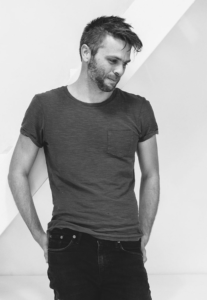
David Finnigan is a writer and theatre-maker from Ngunnawal country in Australia. He works with research scientists to produce theatre about climate and global change. In 2017 his playscript Kill Climate Deniers was awarded the Griffin Playwrights Award. The show premiered at the Griffin Theatre in Sydney and was nominated for Best New Play in the Sydney Theatre Awards. David is an associate of UK theatre company Coney and Australian science-theatre ensemble Boho.
